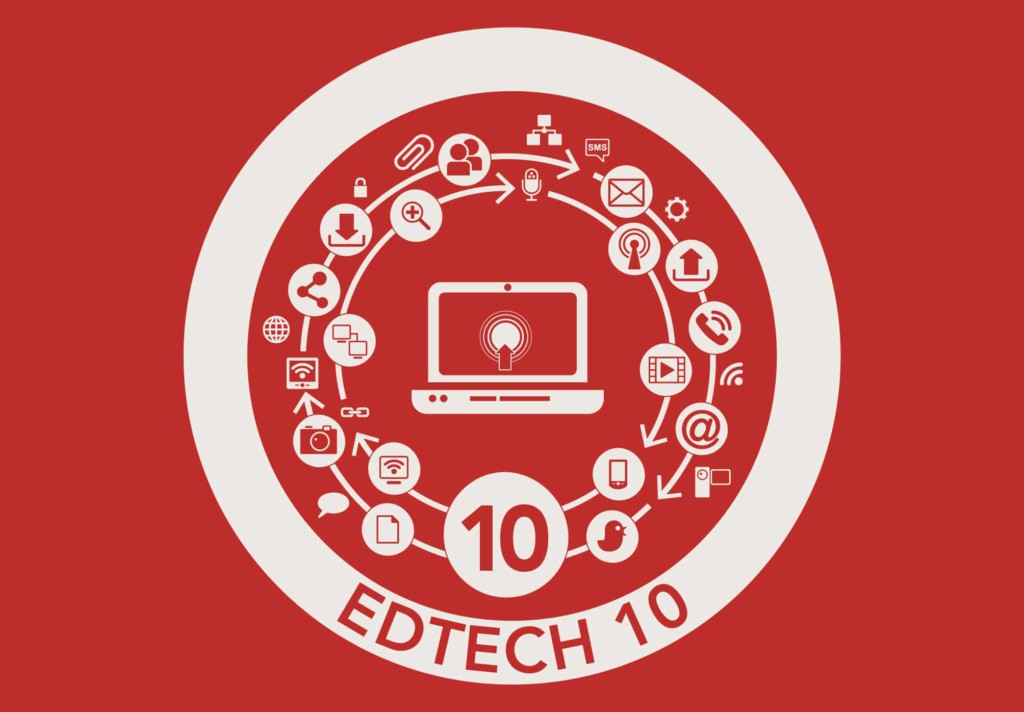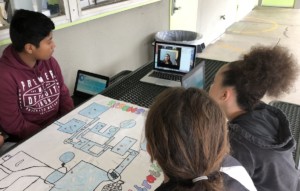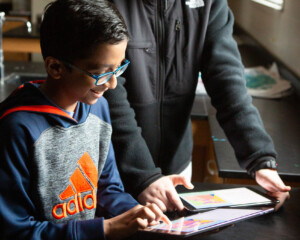EdTech 10: Smart Cities, Competitions and Investments

This week’s top stories show evidence of folks “getting smart” about innovations in education. The Foundation for Excellence in Education (@ExcelinEd), in partnership with Getting Smart, launched the My School Information Design Challenge (#SchoolInfo) – a national competition to rethink and redesign the way in which data is presented on school report cards so that they can drive decisions, spark discussions and support the efforts of state departments of education. The competition offers prizes up to $35,000–so if you are a designer or data geek or a parent who knows school information could be more usable, this is a great way to contribute to education AND enter a cool design challenge. And we’re just getting started…read on for the top 10 EdTech stories of the week!
Smart Cities
1. Cities skilling up. The Smart Cities blog series has culminated in the release of a paperback and ebook. Authored by Tom Vander Ark (@tvanderark) with Mary Ryerse (@maryryerse), Smart Cities that Work for Everyone: 7 Keys to Education & Employment outlines the 7 keys civic formula required to dramatically boost learning outcomes and employability. After debuting the book at the National Conference of State Legislators, Tom and national policy experts stressed importance of innovation zones as an incubation and migration strategy.
Blended Schools & Tools
2. Digital Promise welcomes new members. Eleven new school districts joined Digital Promise’s (@DigitalPromise) League of Innovative Schools. The organization now has 57 innovative members serving more than 3 million students. Members partner with research institutions and EdTech companies to share best practices through participation at conferences, creating greater innovation in leadership and learning. Also, congrats to new member Kettle Moraine School District (we were impressed with two themed flex high schools).
3. Efficacy as a key measure. Pearson (@pearson) is determining what products and instructional practices are most effective and has defined efficacy as “a measurable impact on improving people’s lives through learning.” As John Watson of Keeping Pace (@KeepingPaceK12) suggests, this can be challenging for schools that are implementing digital learning. The end result? We need to know what change is any implementation going to create, how we might measure it, and how we will know if the outcomes are achieved.
4. Unpacking good EdTech stories. Michael Horn (@michaelbhorn) at Christensen Institute wrote this blog about schools that are getting blended learning right. He sites programs that have demonstrated results in the Enlarged City School District of Middletown in New York, (the district won a RTTD grant) including i-Ready, DreamBox Learning (@dreambox_learn), Lexia Learning (@LexiaLearning), Achieve3000 (@Achieve3000), and myON. Takeaway: Start with goals and pick models that support them.
5. Billions and billions. There’s been loads of news coverage lately on Big History Project (@BigHistoryPro), including a New York Times magazine feature on the rich content platform. Getting Smart on Big History Project was launched and features a Google Hangout with teachers who use Big History, resources for professional development, and deployment insights – perfect for a middle/high school humanities or science course or block. Enjoy! Interested in sponsoring a Smart Bundle, check out more information here.
Digital Developments
6. Final-Oui! Khan Academy (@khanacademy) courses are now available in French at fr.khanacademy.org! As we know, world language instruction deserves to be mentioned in the conversation around blended learning opportunities. Stay tuned in with Getting Smart as we release “Elevate and Empower: World Language Instructors as Key Players to Competency-Based” in partnership with Rosetta Stone (@RosettaStone) next month.
7. Three cheers for open, transparent, and accessible resources. President Obama (@BarackObama) announced that the US government will “promote open educational resources to help students and teachers everywhere.” Other highlights include plans to launch an online skills academy and pilot new models for using open educational resources to support learning.
Prizes
8. Prize-a-palooza. In addition to ExcelinEd’s MySchooInfoChallenge, there was a lot of activity in prizes this week.
- XPRIZE (@xprize) announced at the Social Good Summit in NYC the launch of the Global Learning XPRIZE competition. This global challenge invites teams to develop open source and scalable tablet software that enables young people to teach themselves basic reading, writing and arithmetic. With $15 million up for grabs, we wonder… why prizes?
- For the first time in 13 years, the annual Broad Prize for Urban Education that recognizes improvements in urban education is going to two districts. The Broad Foundation (@BroadFoundation) announced that districts in Georgia and Florida stood out as joint winners among 75 of the nation’s largest urban school districts.
- Applications are open in Indiana for the second round of the Innovation School Fellowship awards. Through a partnership between The Mind Trust (@TheMindTrust) and Indianapolis Public Schools (@IPSSchools), talented leaders will be selected and supported to launch high-quality, autonomous schools within the district.
Dollars & Deals
9. Fresh deals. Four new deals this week caught our attention.
Shortly after acquiring Socrative, MasteryConnect (@MasteryConnect) closed a $15 million financing push and turned the corner from viral app to classroom game changer .
- Udacity (@udacity) announced they have obtained $35 million in new investment from investors including Bertelsmann that will be used to increase their work with job credential nanodegrees.
- Creators of the EdCast Knowledge Cloud platform announced a $6 million Series A round of financing led by SoftBank Capital. This backing supports the growth of the “Multiversity” – campuses interconnected through clouds that offer curriculum from major institutions across the globe.
- SchoolMint (@school_mint), provider of K-12 digital enrollment and school selection systems, announced their achievement in raising $2.2 million in seed investments. Led by NewSchools Venture Fund (@NSVF), will support their systems as 60% of users access their services on mobile devices.
Higher, Deeper, Further, Faster Learning
10. Deeper Learning. A comprehensive study was released by the American Institutes for Research (@AIR_Info). Findings: Students from Deeper Learning Network (@DeeperLearning) were more likely than their peers to attend 4 year universities and graduate on time and students in Deeper Learning schools “have better scores on assessments that measure core content knowledge and complex problem solving skills.” (See profiles of 20 Deeper Learning schools.)
The Foundation for Excellence in Education, Pearson, DreamBox Learning and Curriculum Associates are Getting Smart Advocacy Partners.






0 Comments
Leave a Comment
Your email address will not be published. All fields are required.